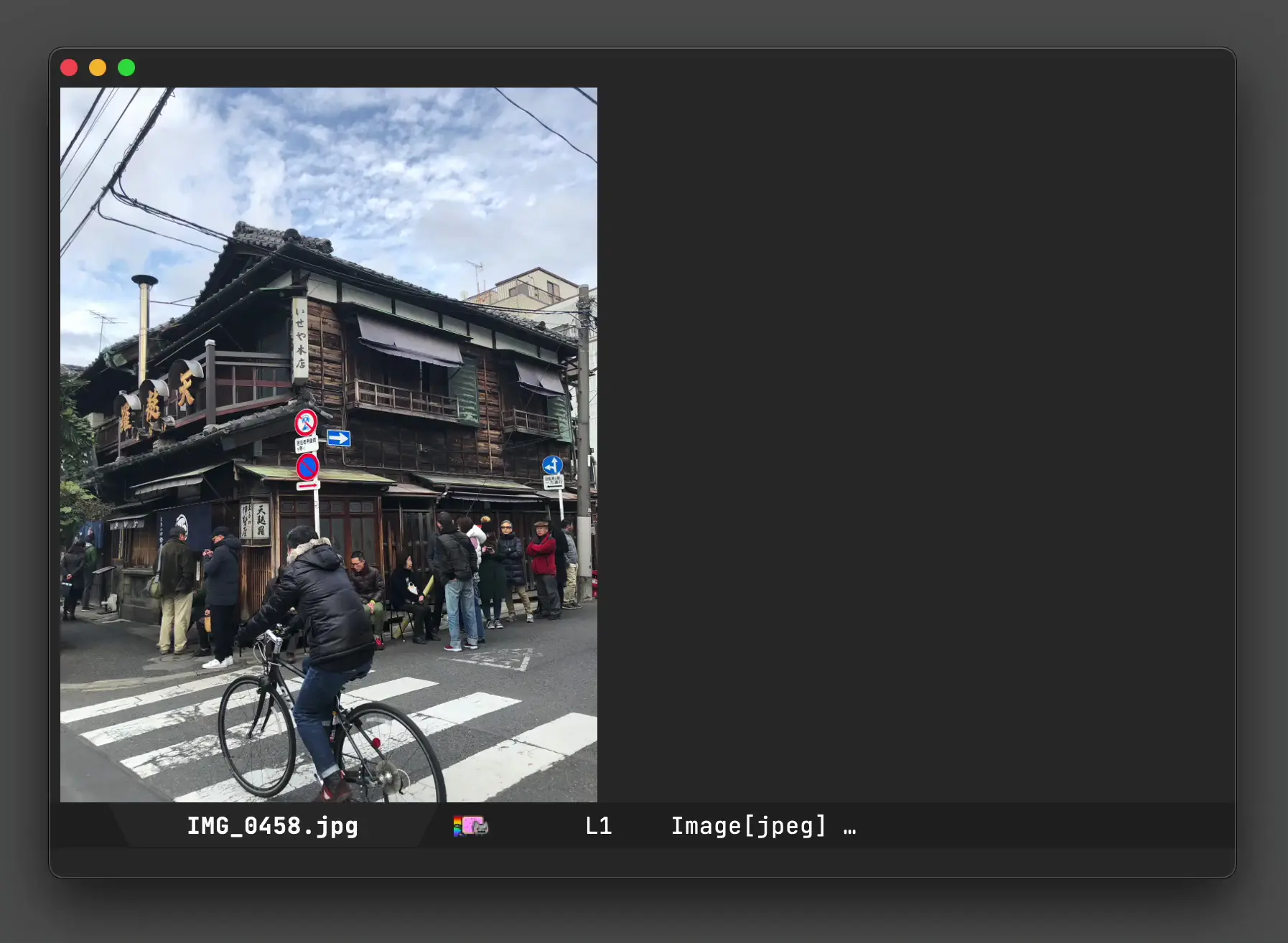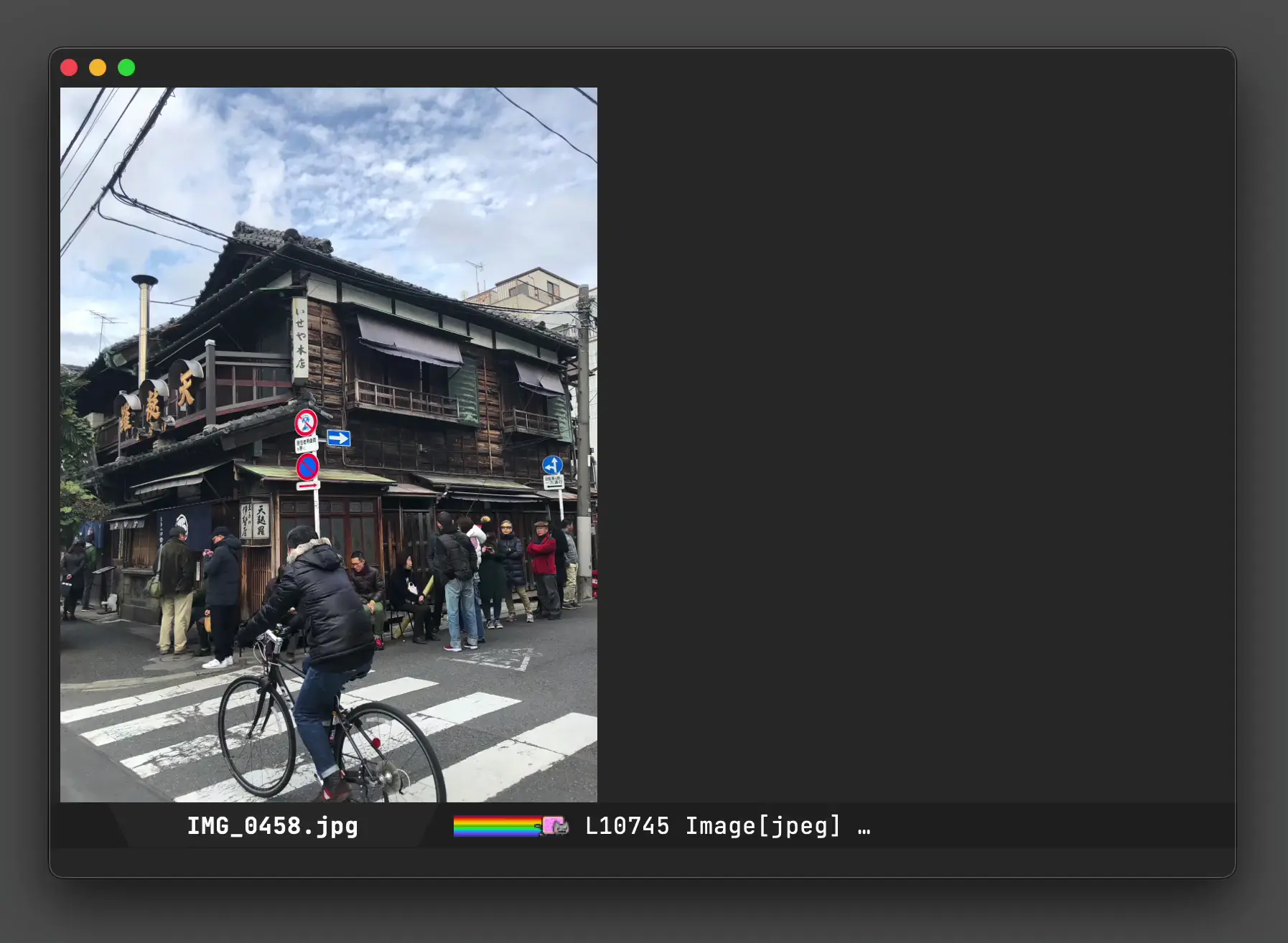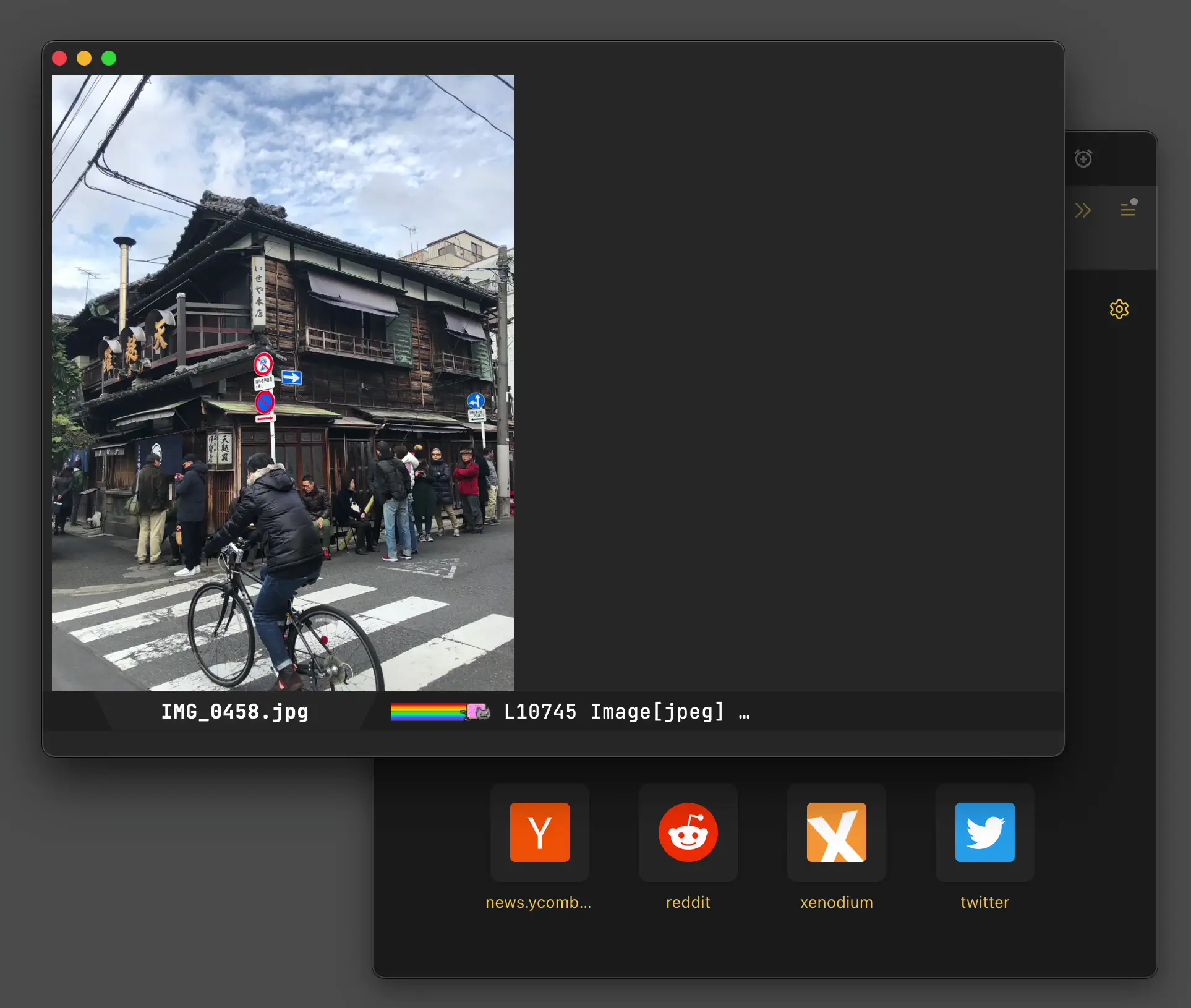Álvaro Ramírez
Hey Emacs, where did I take that photo?
I was recently browsing through an old archive of holiday photos (from dired of course). I wanted to know where the photo was taken, which got me interested in extracting Exif metadata.
Luckily the exiftool command line utility does the heavy lifting when it comes to extracting metadata. Since I want it quickly accessible from Emacs (in either dired or current buffer), a tiny elisp snippet would give me just that (via dwim-shell-command).

(defun dwim-shell-commands-image-exif-metadata () "View EXIF metadata in image(s)." (interactive) (dwim-shell-command-on-marked-files "View EXIF" "exiftool '<<f>>'" :utils "exiftool"))
The above makes all Exif metadata easily accessible, including the photo's GPS coordinates. But I haven’t quite answered the original question. Where did I take the photo? I now know the coordinates, but I can’t realistically deduce neither the country nor city unless I manually feed these values to a reverse geocoding service like OpenStreetMap. Manually you say? This is Emacs, so we can throw more elisp glue at the problem, mixed in with a little shell script, and presto! We've now automated the process of extracting metadata, reverse geocoding, and displaying the photo's address in the minibuffer. Pretty nifty.

(defun dwim-shell-commands-image-reverse-geocode-location () "Reverse geocode image(s) location." (interactive) (dwim-shell-command-on-marked-files "Reverse geocode" "lat=\"$(exiftool -csv -n -gpslatitude -gpslongitude '<<f>>' | tail -n 1 | cut -s -d',' -f2-2)\" if [ -z \"$lat\" ]; then echo \"no latitude\" exit 1 fi lon=\"$(exiftool -csv -n -gpslatitude -gpslongitude '<<f>>' | tail -n 1 | cut -s -d',' -f3-3)\" if [ -z \"$lon\" ]; then echo \"no longitude\" exit 1 fi json=$(curl \"https://nominatim.openstreetmap.org/reverse?format=json&accept-language=en&lat=${lat}&lon=${lon}&zoom=18&addressdetails=1\") echo \"json_start $json json_end\"" :utils '("exiftool" "curl") :silent-success t :error-autofocus t :on-completion (lambda (buffer) (with-current-buffer buffer (goto-char (point-min)) (let ((matches '())) (while (re-search-forward "^json_start\\(.*?\\)json_end" nil t) (push (match-string 1) matches)) (message "%s" (string-join (seq-map (lambda (json) (map-elt (json-parse-string json :object-type 'alist) 'display_name)) matches) "\n"))) (kill-buffer buffer)))))
Displaying the photo's address in the minibuffer is indeed pretty nifty, but what if I’d like to drop a pin in a map for further exploration? This is actually simpler, as there's no need for reverse geocoding. Following a similar recipe, we merely construct an OpenStreetMap URL and open it in our favourite browser.

(defun dwim-shell-commands-image-browse-location () "Open image(s) location in browser." (interactive) (dwim-shell-command-on-marked-files "Browse location" "lat=\"$(exiftool -csv -n -gpslatitude -gpslongitude '<<f>>' | tail -n 1 | cut -s -d',' -f2-2)\" if [ -z \"$lat\" ]; then echo \"no latitude\" exit 1 fi lon=\"$(exiftool -csv -n -gpslatitude -gpslongitude '<<f>>' | tail -n 1 | cut -s -d',' -f3-3)\" if [ -z \"$lon\" ]; then echo \"no longitude\" exit 1 fi if [[ $OSTYPE == darwin* ]]; then open \"http://www.openstreetmap.org/?mlat=${lat}&mlon=${lon}&layers=C\" else xdg-open \"http://www.openstreetmap.org/?mlat=${lat}&mlon=${lon}&layers=C\" fi" :utils "exiftool" :error-autofocus t :silent-success t))
Got suggestions? Improvements? All three functions are now included in dwim-shell-commands.el as part of dwim-shell-command. Pull requests totally welcome ;)